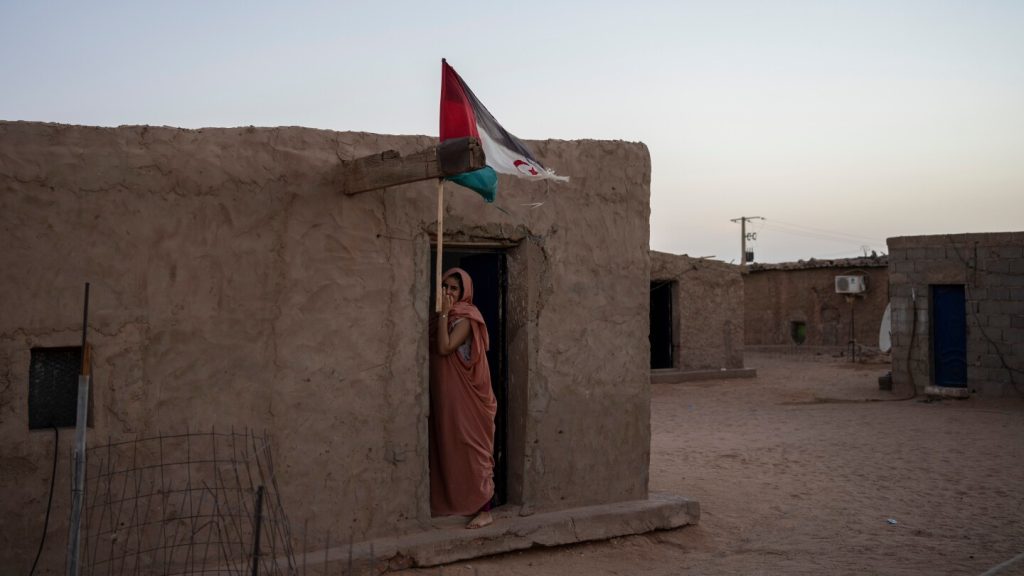UNITED NATIONS (AP) — On Friday, the U.N. Security Council endorsed a resolution supporting Morocco’s claim over the contested Western Sahara. This decision mirrors the Trump administration’s backing for Morocco in North Africa.
Despite a divided vote, the resolution represents the strongest approval yet for Morocco’s intention to retain control over the territory. It has gained support from most EU members and an increasing number of African allies.
U.S. ambassador to the U.N., Mike Waltz, welcomed the resolution, stating it capitalizes on a significant moment towards achieving long-awaited peace in Western Sahara. The resolution acknowledges Morocco’s proposal as a negotiating basis but omits mention of a referendum including independence, a solution preferred by the pro-independence Polisario Front and its supporters, such as Algeria, Russia, and China.
In a notable address broadcast on Moroccan television after the vote, King Mohammed VI praised the result and vowed to enhance Morocco’s proposal with more specifics. He also expressed a desire for dialogue with Algeria’s President Abdelmadjid Tebboune.
The U.S., which backed the resolution, was one of 11 countries voting in favor, while three countries—Russia, China, and Pakistan—abstained. Algeria, a key supporter of Polisario, did not cast a vote. Sidi Mohamed Omar, the Polisario ambassador to the U.N., expressed gratitude to the abstaining allies and claimed the resolution does not imply recognition of Morocco’s sovereignty over Western Sahara.
Western Sahara, a phosphate-rich coastal area previously under Spanish control, is claimed by both Morocco and the Polisario Front, which claims representation of the indigenous Sahrawi people. Although the resolution suggests “genuine autonomy under Moroccan sovereignty” could be a viable solution, it also extends the U.N. peacekeeping mission in Western Sahara for another year—continuing a long-standing arrangement.
U.S. Perspectives on Morocco’s Future
This vote follows comments by U.S. special envoy Steve Witkoff, who indicated a potential for peace between Morocco and Algeria within 60 days. Although the nations are not currently at war, they have lacked diplomatic relations for four years. The U.N. resolution encourages all involved parties to “seize this unprecedented opportunity for a lasting peace,” with Secretary-General Antonio Guterres expected to review the peacekeeping mission’s mandate based on developments within six months.
Ongoing Conflict Dynamics
Morocco controls nearly all of Western Sahara, except for a strip known as the “free zone” east of a Moroccan sand wall. A 1991 ceasefire aimed to lead to a self-determination referendum, but disputes over voter eligibility have hindered progress. Morocco has significantly developed the region, constructing infrastructure and providing state subsidies to facilitate settlement.
Despite the improvements, Polisario withdrew from the ceasefire in 2020 following clashes, claiming ongoing military activity, while Morocco denies significant conflict. The U.N. characterizes the situation as “low-level hostilities.”
Shifting Diplomatic Priorities
The conflict remains central to North African diplomacy, with Morocco regarding support for its autonomy plan as a measure of ally relationships. While the recent resolution is viewed as an advancement, it still contains several limitations. Observations from U.N. envoy Staffan de Mistura hint at the need for further clarification on Morocco’s autonomy offer, warning that a lack of progress could jeopardize the U.N.’s role in the situation.
Recent shifts in U.S. funding priorities for U.N. programs and agencies have raised questions about the future of U.N. involvement in the region. U.S. officials have expressed a selective approach to funding, favoring operations they see as aligned with national interests.



